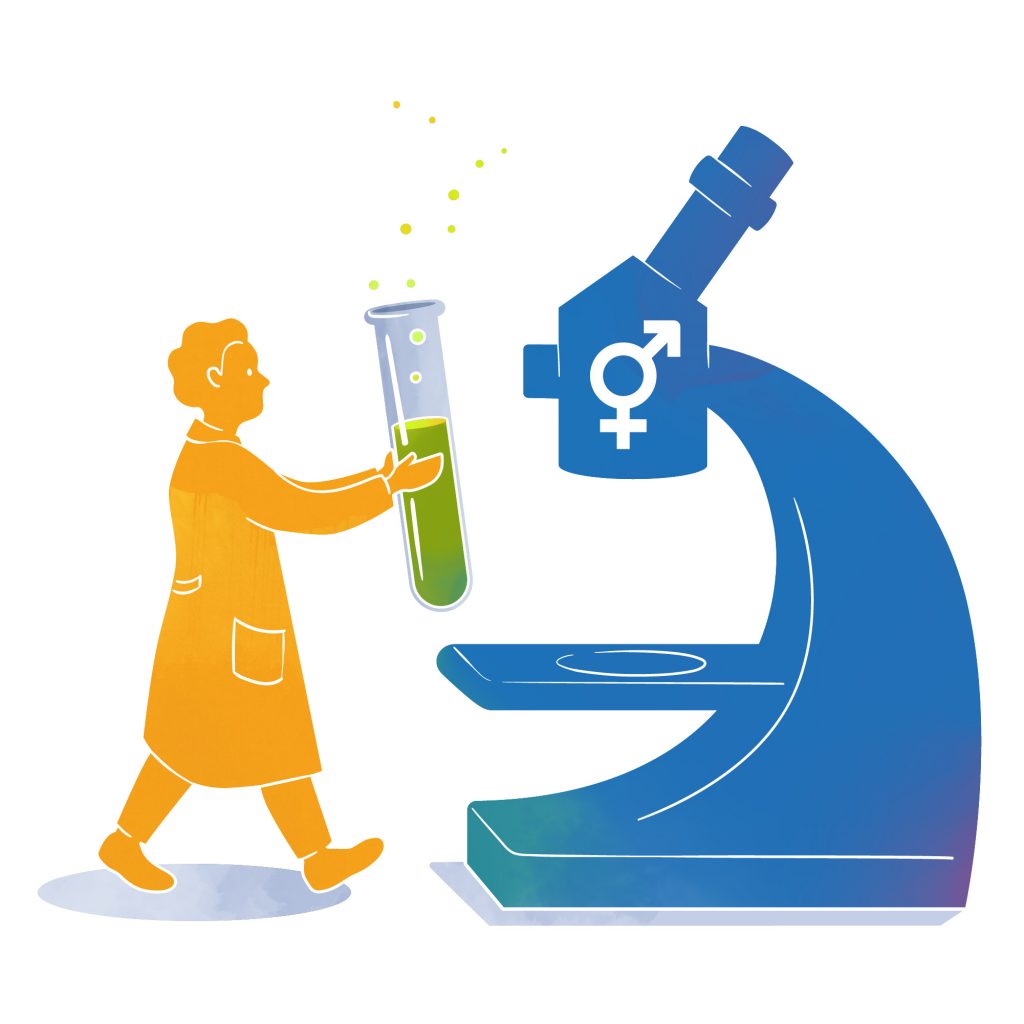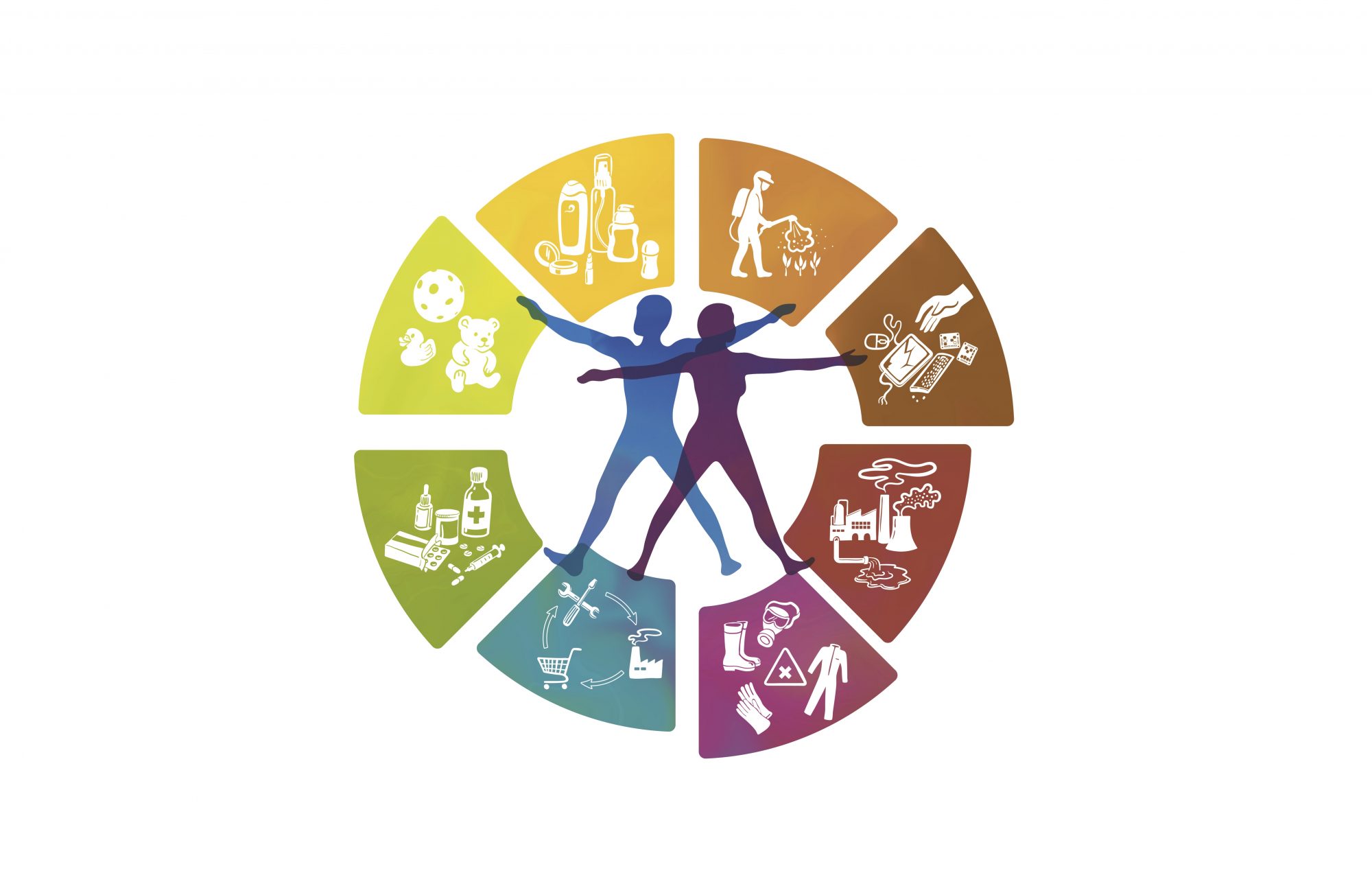Final report of the project GenChemRoadMap and its pilot phase in Germany
(in German below)

MSP Institute implemented the “GenChemRoadMap” project in 2021 and 2022. The project aimed to help initiate and build support for the systematic integration of gender into national chemicals management with the Gender and Chemicals Road Map, a guide for SAICM National Focal Points. The road map was piloted in Germany in collaboration with the German SAICM National Focal Point, Dr Hans Christian Stolzenberg, and in consultation and collaboration with other German stakeholders. The following article presents a brief summary of the project activities as well as the first results from the pilot phase in Germany:
From April-May 2021, the Gender and Chemicals Road Map and the associated Workbook were developed. The Road Map offers an overview how to mainstream gender into chemicals management at national level and the workbook offers a step-by-step guidance for the implementation.
The kick-off event for the pilot phase in Germany was the next step. A round table meeting with stakeholders took place on July 20, 2021, organized by Dr Hans-Christian Stolzenberg, the German SAICM National Focal Point at the Federal Environment Agency, and the MSP Institute. More than 40 participants from industry, governmental and non-governmental organizations as well as professional associations and science followed the invitation and engaged in a first exchange on gender and gender equity among diverse stakeholders of chemicals management in Germany.
The event was followed by an international workshop on Gender in National Chemicals Policies for SAICM National Focal Points on Sept. 24, 2021. The aim of the workshop was to generate interest in the linkages between gender and chemicals, to present and discuss the Gender and Chemicals Road Map, and to facilitate exchange on gender aspects among SAICM National Focal Points. A total of 39 participants from government organizations, academia, civil society and industry attended the virtual workshop, including about 20 National Focal Points from different parts of the world.
An initial implementation of the steps included in the Gender and Chemicals Road Map took place from October 2021 to April 2022 as part of the pilot phase in Germany: In October, the German SAICM National Focal Point and the MSP Institute started with a core working group of interested stakeholders. The working group held several virtual meetings to take stock of the integration of gender in German chemicals management and was able to gather initial ideas for optimizing the integration of gender. This was done along five action areas based on the questions for gender analysis, step 3 of the Gender and Chemicals Road Map. To narrow the scope of the work, the team focused on the topic of chemicals in building materials. The gender analysis highlighted that while several projects and policy activities in chemicals management in Germany do address gender aspects, the lack of gender-specific data, or the advancement of women in chemicals management, a strategic overview to improve gender mainstreaming in chemicals management has been missing to date. The team then conducted a Gender Impact Assessment, step 4 of the Gender and Chemicals Road Map, including secondary research as well as expert interviews on the gender impacts of a policy proposal currently under discussion: the introduction of a building resource passport in Germany. The assessment showed how the information needs of building owners on the topic of chemical safety can be taken into account from a gender perspective, and how the policy instrument could be designed effectively.
A summary of the results and experiences of the pilot phase in Germany can be found in the flyer, and a detailed presentation of the results and experiences can be found in the presentation.
The GenChemRoadMap project once again highlighted the relevance and potential of integrating gender aspects for sustainable chemicals management. Even though the integration of gender aspects can be time-consuming and resource-intensive, the Gender and Chemicals Road Map is a helpful step-by-step guide that can be fun to work through, particularly in a team and with other stakeholders.
Would you like to learn more about the Gender and Chemicals Road Map or the pilot phase in Germany, or would you like to optimize the integration of gender aspects into your chemicals management?
Then please do not hesitate to contact us:
Anna Holthaus,
Project Manager GenChemRoadMap,
MSP Institute: anna.holthaus[at]msp-institute.org
GenChemRoadMap – Konkrete Schritte zur Integration von Gender in das Chemikalienmanagement
Abschlussblogartikel über das Projekt GenChemRoadMap und dessen Pilotphase in Deutschland
Im Projekt “GenChemRoadMap” (2021-2022) hat MSP Institute e.V. eine Gender- und Chemikalien-Roadmap und einen Handlungsleitfaden für SAICM National Focal Points entwickelt. Das Projekt setzte erste Impulse für die systematische Integration von Gender in das nationale Chemikalienmanagement. Die Road Map wurde zudem in Zusammenarbeit mit dem deutschen SAICM National Focal Point, Dr. Hans Christian Stolzenberg (Umweltbundesamt), und anderen relevanten deutschen Akteuren in Deutschland pilotiert. Wir möchten die Projektaktivitäten sowie die ersten Ergebnisse der Pilotphase in Deutschland hier kurz vorstellen:
Von April-Mai 2021 wurden die Gender and Chemicals Road Map und das dazugehörige Workbook entwickelt. Die Road Map bietet einen Überblick darüber, wie das Thema Geschlechtergerechtigkeit im nationalen Chemikalienmanagement berücksichtigt werden kann, und das Workbook bietet eine schrittweise Anleitung für die Umsetzung.
Anschließend fand am 20.07.2021 das Kick-off-event zur Pilotphase in Deutschland, der Runde Tisch mit verschiedenen Stakeholdern des deutschen Chemikalienmanagements, statt. Dr. Hans-Christian Stolzenberg, der deutsche SAICM National Focal Point im Umweltbundesamt, und das MSP Institute hatten gemeinsam zu dieser virtuellen Auftakt-Veranstaltung eingeladen. Mehr als 40 Teilnehmende aus Industrie, Regierungs- und Nichtregierungsorganisationen sowie Berufsverbänden und Wissenschaft tauschten sich zum Thema Geschlechtergerechtigkeit und Gender aus.
Gefolgt wurde die Veranstaltung vom einem internationalen Workshop zu Gender in der nationalen Chemikalienpolitik für SAICM National Focal Points am 24.09.2021. Ziel der virtuellen Veranstaltung war es, Interesse an den Zusammenhängen von Gender und Chemikalien zu wecken, die Gender and Chemicals Road Map vorzustellen und zu diskutieren, sowie den Austausch unter den SAICM National Focal Points zu ermöglichen. Insgesamt folgten 39 Teilnehmende aus Regierungsorganisationen, Wissenschaft, Zivilgesellschaft und Industrie der Einladung, darunter etwa 20 Nationale Focal Points aus verschiedenen Teilen der Welt.
Eine erste Umsetzung der Arbeitsschritte der Gender and Chemicals Road Map erfolgte daraufhin von Oktober 2021 bis April 2022 im Rahmen der Pilotphase in Deutschland: Im Oktober starteten der deutsche SAICM National Focal Point und das MSP Institute mit einer Kernarbeitsgruppe interessierter Stakeholder. Die Arbeitsgruppe führte in mehreren virtuellen Treffen eine Bestandsaufnahme der Integration von Gender im deutschen Chemikalienmanagement durch und konnte so erste Idee für die Optimierung der Integration von Gender sammeln. Dies geschah entlang von fünf Handlungsfeldern anhand der Fragen zur Gender Analyse, Schritt 3 der Gender and Chemicals Road Map. Um den Umfang Pilotphase überschau zu halten, konzentrierte sich das Team auf das Thema Chemikalien in Baumaterialien. Die Genderanalyse verdeutlichte, dass in Deutschland zwar mehrere Projekte und politische Aktivitäten im Chemikalienmanagement Genderaspekte, den Mangel an geschlechtsspezifischen Daten oder die Förderung von Frauen im Chemiemanagement thematisieren, ein strategischer Überblick zur Verbesserung des Gender Mainstreaming im Chemikalienmanagement bisher jedoch fehlte. Anschließend führte das Team mittels Literaturrecherche und Expert*innen-Interviews ein Gender Impact Assessment, Schritt 4 der Gender and Chemicals Road Map, zu den geschlechtsspezifischen Auswirkungen der zukünftig geplante Einführung eines Gebäuderessourcenpasses in Deutschland durch. Das Assessment zeigte, wie aus Geschlechterperspektive die Informationsbedürfnisse zur Chemikaliensicherheit von Gebäudebesitzer*innen berücksichtigt und das Politikinstrument somit effektiv gestaltet werden könnte.
Zusammenfassende Informationen zu den Ergebnissen und Erfahrungen der Pilotphase in Deutschland finden Sie im Flyer, eine ausführliche Darstellung der Ergebnisse und Erfahrungen finden Sie in der Präsentation (beides auf English).
Das Projekt GenChemRoadMap verdeutlichte nochmals die Relevanz und das Potenzial der Integration von Genderaspekten für ein nachhaltiges Chemikalienmanagement. Auch wenn dies durchaus zeitaufwendig und arbeitsintensiv sein kann, so bietet die Gender and Chemicals Road Map doch einen hilfreichen Fahrplan, dessen Ausführung im Team und mit weiteren Stakeholdern durchaus auch Freude bereiten kann.
Möchten Sie mehr über die Gender and Chemicals Road Map oder die Pilotphase in Deutschland erfahren oder selbst die Integration von Genderaspekten in ihr Chemikalienmanagement optimieren?
Dann zögern Sie bitte nicht, uns zu kontaktieren:
Anna Holthaus, Projektleiterin GenChemRoadMap,
MSP Institute e.V.: anna.holthaus[at]msp-institute.org
